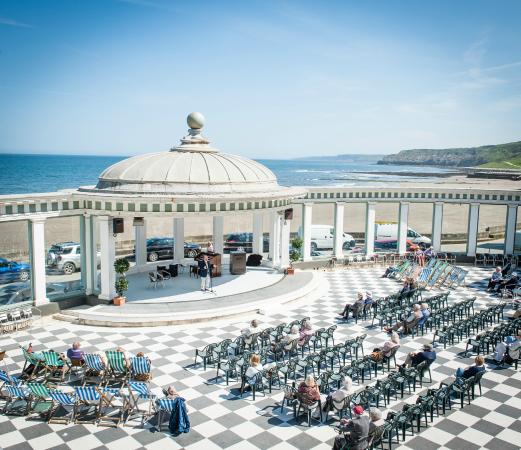
Oh I Do Like To Be Beside The Seaside: A Short History of British Tourism
The Coronavirus pandemic has had a colossal impact on the British tourism industry. The fear of infection and uncertainty surrounding self-isolation upon return has rendered the typical break abroad untenable for many.
This hesitation, combined with a public starved of adventure during lockdown, has ensured that the great British summer staycation has never been so popular. But when did Britons first begin travelling around the country and why?
Spa Towns
The modern spa town first emerged in the late Tudor and early Stewart period of the early seventeenth century in towns such as Scarborough (pictured, and still popular), Bath, Tunbridge Wells in Kent, and Hockley in Essex. Located on remote parts of the British coastline or in rural areas, these spa towns would often require extensive journeys. Undertaking such an expedition was a demonstration of class, as travelling great distances required lots of time, money and resources.
The Seaside Boom
Modern tourism as we know it today was a direct result of the industrial revolution. Industrialisation introduced limitations on working hours, while the Bank holiday Act of 1871 gave Britons regular holidays, introducing the public to the idea of leisure time. The industrial revolution also served to shrink the distances within and between countries through technological developments that improved speeds of steamships, railways and telegraphs.
By the 1840s interest in travel was growing amongst all classes, as railway companies and travel firms began to offer cheap fares and low-cost package trips. Thomas Cook (1808-1902) has been named the ‘founder of modern tourism’ by many historians, as in 1851 Cook organised the first ever group package holiday for a trip of working class people from the Midlands to the Great Exhibition of the Crystal Palace in London.
By the end of the century tourism had proliferated. Termed the ‘seaside boom’ by Peter Borsay, the number of tourists to Blackpool soared from 800,000 in 1871 to 4 million in 1913, while smaller resorts such as Great Yarmouth saw tourist influxes double from 40,000 in 1886 to 800,000 in 1897.
Tourism and Modern Media
Alongside these new travel possibilities, there was an aesthetic shift towards the romantic, picturesque and sublime in the high-status art of the 18th and 19th centuries. It resulted in the incorporation of landscape, topography and natural forms in the great works of artists such as William Turner, William Gilpin and John Constable, to name but a few.
Developments in printing meant that these artistic representations of British coastline and countryside could be reproduced at an unprecedented rate, for very low cost. Picture postcards, guidebooks, advertising and all forms of memorabilia adopted this new imagery, ensuring that all classes consumed the British landscape in one way or another.
Empire Exhibitions
Another form of internal tourism saw Britons travelling to see grand exhibitions laid on to showcase the British Empire. Imperial exhibitions were said to transport guests ‘around the world in a day’ for as little as 18p in the case of the Colonial and Indian Exhibition of 1886.
Exhibitors sought to inform visitors of the beneficial trading relationships of Britain and her colonies and often featured themed pavilions at which guests could read of British progress abroad. Another aim was to bring the Empire home through a transportation of the senses – visitors could taste exotic ingredients at imperial restaurants, smell the tang of wood smoke at native villages and observe colonised people in model mud huts.
Regardless of the obvious issues surrounding orientalist depictions and the irony of such fictional constructions, imperial exhibitions were highly popular, with the British Empire Exhibition of 1924 attracting 27 million visitors.
Final Word
Ultimately, while British tourism has taken different forms over the ages, our sense of adventure and escape remains strong amongst our population. And as unfortunate as it is that foreign travel is currently on pause, there is no time like the present to rediscover the beauty and rich history of local countryside and coastline that we are so fortunate to have on our doorsteps.
